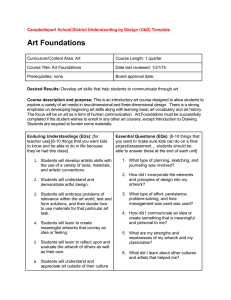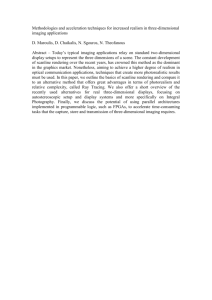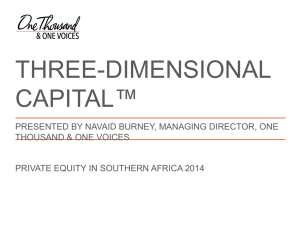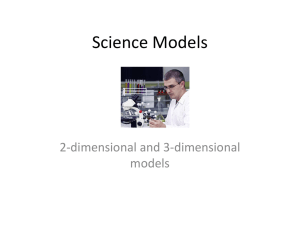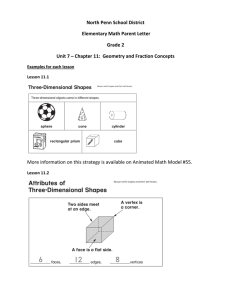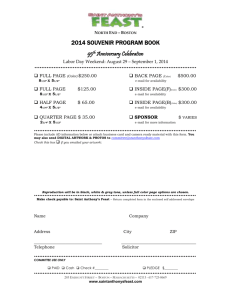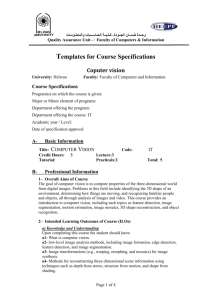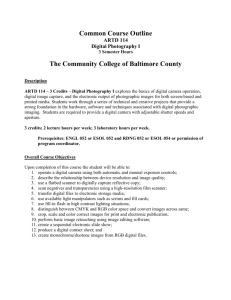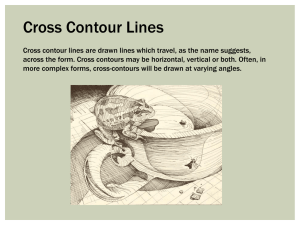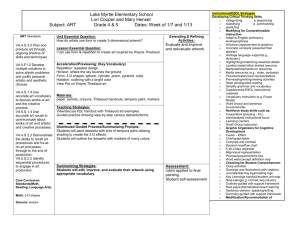ARTD 113 - CCBC Faculty Web
advertisement
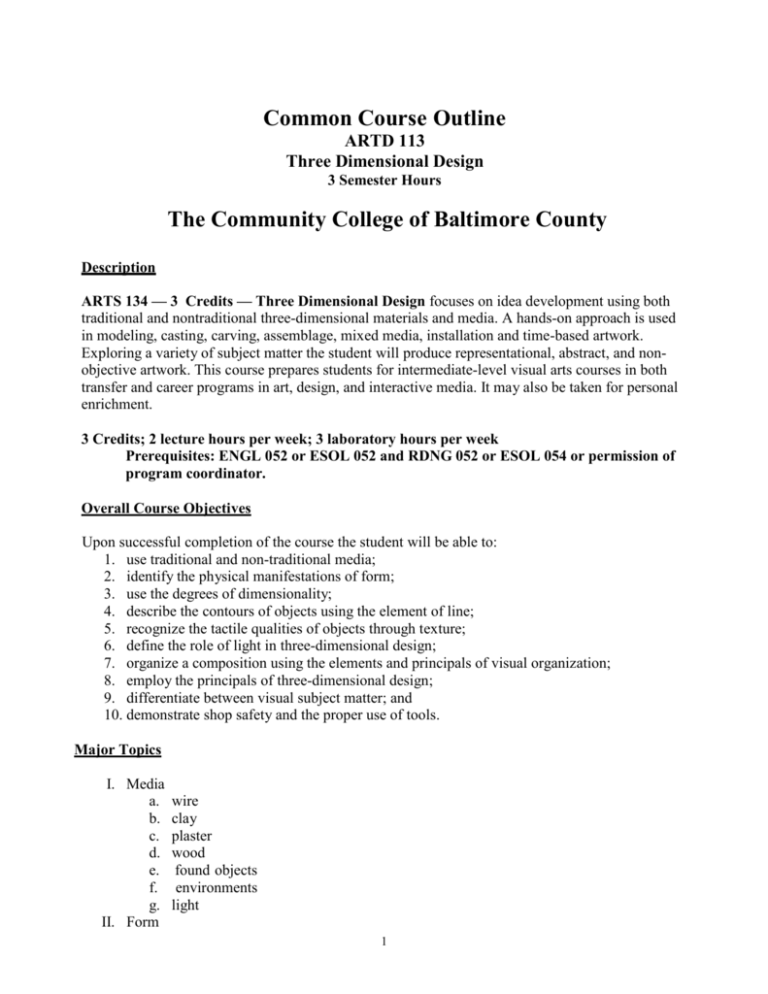
Common Course Outline ARTD 113 Three Dimensional Design 3 Semester Hours The Community College of Baltimore County Description ARTS 134 — 3 Credits — Three Dimensional Design focuses on idea development using both traditional and nontraditional three-dimensional materials and media. A hands-on approach is used in modeling, casting, carving, assemblage, mixed media, installation and time-based artwork. Exploring a variety of subject matter the student will produce representational, abstract, and nonobjective artwork. This course prepares students for intermediate-level visual arts courses in both transfer and career programs in art, design, and interactive media. It may also be taken for personal enrichment. 3 Credits; 2 lecture hours per week; 3 laboratory hours per week Prerequisites: ENGL 052 or ESOL 052 and RDNG 052 or ESOL 054 or permission of program coordinator. Overall Course Objectives Upon successful completion of the course the student will be able to: 1. use traditional and non-traditional media; 2. identify the physical manifestations of form; 3. use the degrees of dimensionality; 4. describe the contours of objects using the element of line; 5. recognize the tactile qualities of objects through texture; 6. define the role of light in three-dimensional design; 7. organize a composition using the elements and principals of visual organization; 8. employ the principals of three-dimensional design; 9. differentiate between visual subject matter; and 10. demonstrate shop safety and the proper use of tools. Major Topics I. Media a. b. c. d. e. f. g. II. Form wire clay plaster wood found objects environments light 1 a. positive forms 2 III. IV. V. VI. VII. VIII. IX. X. b. negative space c. organic forms d. geometric forms e. static forms f. dynamic forms g. kinetic forms Dimensionality a. relief b. three-quarter works c. freestanding works d. environmental works Line a. contour line b. cross contour line c. gesture Texture a. natural b. worked c. visual Light a. value b. source c. light as a medium Composition a. scale b. balance Design Elements a. repetition b. variety c. rhythm d. balance e. emphasis and economy f. proportion Subject matter a. representational b. abstraction c. stylized d. non-objective Content a. emotional b. intellectual c. symbolic d. narrative implications Course Requirements Grading/exams: Grading procedures will be determined by the individual faculty member but will include the following: 3 Artist research notebook that includes information on at least 35 different artists A minimum of eight projects incorporating a variety of traditional and non-traditional media Portfolio of all projects completed during the course Writing: The individual faculty member will determine specific writing assignments based on the major topics listed above. Other Course Information This course is a foundation/core course within the Institute of Art, Design, and Interactive Media. Individual faculty members may include additional course objectives, major topics, and other course requirements to the minimum expectations stated in the Common Course Outline. 4
